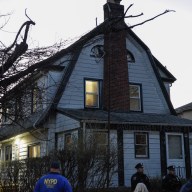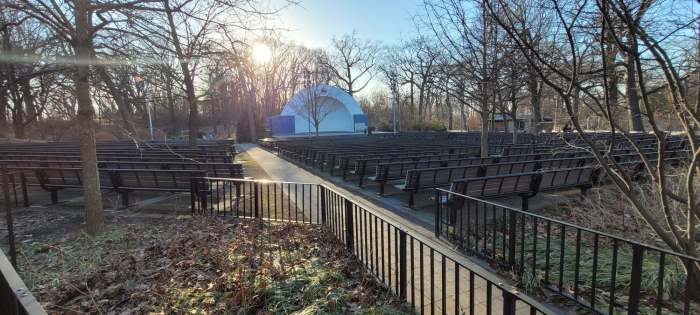By The TimesLedger
If the inflammatory rhetoric coming from Councilman Charles Barron (D-Brooklyn) is any indication, the next four years at City Hall should be at least interesting. Barron was quoted in an interview last week as saying that the tougher standards for entrance to the CUNY four-year colleges are racist.
The councilman, a former Black Panther, sees the introduction of entrance exams and the elimination of remedial courses at the four-year colleges as a sign of racism. As the chairman of the City Council’s Committee on Higher Education, Barron should weigh his words more carefully.
First, it is inherently racist to imply that “standards” put minority students at a disadvantage. This should anger any parent who wants their child to be judged by their abilities and accomplishments rather than the color of their skin.
If Barron’s analysis were correct, one might expect that enrollment would have declined at the CUNY four-year colleges. The opposite is true. According to the CUNY chancellor, enrollment at the senior CUNY colleges is up 23 percent from one year ago. Apparently Barron is a man who does not let the facts get in the way of his political agenda.
Barron is also upset that remedial courses will no longer be offered at the four-year CUNY colleges. In essence, this means that students entering these college will be expected to do college-level work when they walk through the door. This may close the door — at least temporarily — to some students, but it will also raise the level of respect for a degree from these colleges.
Since the CUNY system is the only affordable option for many inner-city students, it is critical that potential employers recognize a BA from one of these colleges.
Meanwhile, the CUNY two-year colleges continue to offer remedial courses. No doubt many students will continue to use these colleges to get the skills they need for a four-year college. This opens the door to higher education for students who have the potential to do college-level work but have not yet acquired the basic skills.
This isn’t racism. This is common sense that will benefit students of every color.
Editorial: A funding crisis
There is a cloud hanging over the CUNY system, but it is not made of higher standards. Gov. Pataki’s proposed budget would radically alter the state’s Tuition Assistance Program.
In his 2002-03 executive budget, Pataki has proposed giving state college students two-thirds of their TAP awards while in college and saving the final third after graduation. The change in administering the grants is expected to save the state $155 million a year.
The governor argues that this would provide an incentive for students to graduate. But what happens to the students who need every penny of their TAP funding now? Will the colleges accept an IOU? Probably not.
The governor and state Legislature are under tremendous pressure to cut spending. Like the city, the state’s economy was devastated by the attack on the World Trade Center. If the students who protested the proposed change in TAP want the funds restored, they need to find other ways for the state to cut spending by $155 million. This will not be easy.
For the foreseeable future, this is the formula to follow. Those who oppose a particular reduction in city or state spending must do their homework. It is not enough to say “Don’t cut my program.” If you don’t like with the proposed budget, you must be prepared to offer a responsible alternative.
Editorial: Councilman Avella opens Pandora’s Box
As a member of the City Council Committee on Land Use, Councilman Tony Avella wants the Council to revisit zoning laws that allow religious institutions and other nonprofit organizations to build as-of-right in New York City neighborhoods. In doing so, Avella has touched a nerve, but he is also opening Pandora’s Box.
In recent years, northeast Queens has witnessed the building of dozens of new churches, synagogues and temples in residential neighborhoods. There is no question that these institutions have had an impact on the quality of life in the neighborhoods in which they exist. Most often, these institutions do not have adequate parking for days when their congregations gather for a weekly service.
There may well be justification for the city exercising some control over the proliferation of these institutions. But the Council must move very carefully. Remove the as-of-right designation and some houses of worship could face bureaucratic discrimination that could apply one standard for well-established churches and synagogues and another for new or less popular religious organizations.
If the zoning regulations are changed, existing churches and temples would be grandfathered in. This would put religions that are new to Queens at a distinct disadvantage.
Avella is right. This is an area that must be addressed. But no one should be misled into thinking that the Council will find easy answers.































